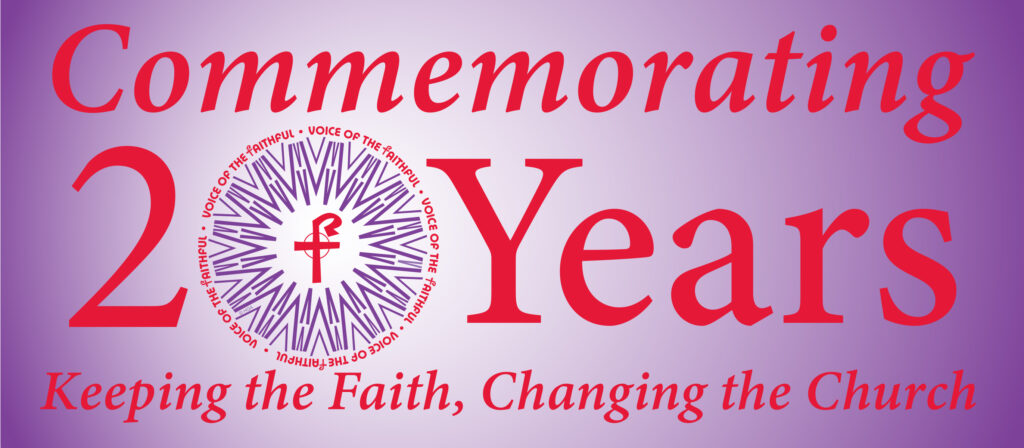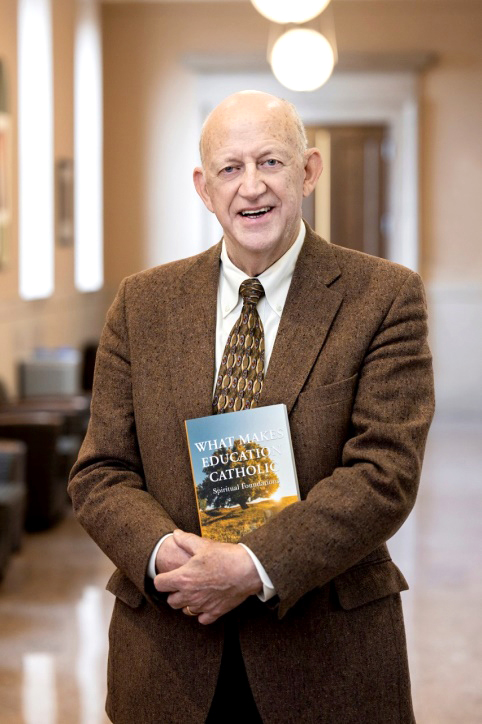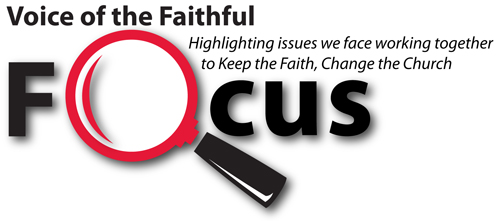
In the Vineyard :: October 12, 2022 :: Volume 22, Issue 19
National News
Celebrate 20 Years!

Please join us on Saturday, Oct. 29, 2022, at the Boston Marriott Hotel Newton, when we gather (in person again!) to pray, learn, plan, and socialize — as a community — honoring our commitment, 20 years and continuing, to Keep the Faith, Change the Church. Don’t miss this opportunity to greet old friends, make new friends, and help us prepare for the next 20 years.
Event: Voice of the Faithful 20th Year Commemoration
Date: Saturday, Oct. 29, 2022
Time: 9:30 a.m.-5 p.m. (Lunch included) P.S. It’s a delicious buffet.
Place: Boston Marriott Hotel Newton, 2345 Commonwealth Ave., Newton MA
A venue familiar to us for its good food and comfortable meeting space.
Click here for an agenda and more information.
REGISTRATION DEADLINE IS OCT. 18.
We will have the latest VOTF news, an interactive presentation by one of VOTF’s best friends and colleagues, Prof. Thomas H. Groome, Ed.D., from Boston College, at VOTF’s 20th Commemoration celebration, and a special Commemoration display opportunity to note your own remembrances.

Prof. Thomas H. Groome, Ed.D., from Boston College will present an interactive keynote address called Putting Jesus at the Heart of Keeping the Faith and Changing Church. “I would like to spark people’s own thoughts about why Catholics often think of Church or Pope or Sacraments as the ‘heart’ of their faith and seldom Jesus,” Tom says. Dr. Groome’s work What Makes Education Catholic: Spiritual Foundations recently won the top award in the Religious Education category at the 2022 Catholic Media Association conference. In 2020, Tom received top place from the Catholic Press Association for his book Faith for the Heart: A Catholic Spirituality.
We will have our Synod update and report for you plus updates on the three major studies VOTF conducts: diocesan financial transparency and accountability, governance via Diocesan Finance Councils, and the first national analysis of all 177 dioceses and their child protection and Safe Environment practices–with plenty of time for questions and answers about what we have learned. These reports give the faithful in each parish the information needed to judge–and help improve–diocesan activities within the purview of each report. You also don’t want to miss a report on women’s roles and our collaborative work for greater input from the centuries-neglected half (and more) of the Church.
We also have special appearances by Dr. Phyllis Zagano, recognized worldwide as the premiere scholar on women deacons, who will lead us in Grace before the luncheon and serve as acolyte for the closing Mass with Fr. Bill Clark, who led the benediction during our virtual conferences, and the Paulist Center Community Choir with Normand Gouin, renowned pastoral musician and composer.
Added attractions:
20th Year Commemoration Wall: The Commemoration Wall will be your opportunity to memorialize your recollections of the past two decades as you worked to keep the faith, change the Church. We will provide paper, pen, and pin to jot down and fasten to the Wall a brief comment, remembrance, blessing, hope, or suggestion, acknowledging how the Spirit has changed VOTF members and supporters and the Church over the past 20 years. Selected participants will bring attendees’ commemorations to the altar during the Offertory of the closing Mass, giving VOTF’s work its “authentic meaning, since through the celebration of the Eucharist, it is united to the redemptive sacrifice of Christ.” (Robert B. Williams, “Offertory Catechesis”).
Opening Song & Prayer by Claire Byrne and Manny Lim, who opened last year’s virtual conference.
Plus plenty of opportunities to purchase books and browse Ginny Remedi’s jewelry designs.
Click here for an agenda and more information.
More Transparency Needed in Sexual Abuse Cases
Retired Bishop Carlos Filipe Ximenes Belo of Dili in Timor-Leste was the subject of a detailed investigation by newspaper De Groene Amsterdammer into sexual abuse he allegedly committed over two decades ago, but Matteo Bruni of the Vatican press office says they were already aware of the allegations and had taken action.
The newspaper began its investigation in 2002, and spoke with 20 individuals who knew of the situation, including people from inside and outside the Catholic church. The 74-year-old Salesian bishop has sexually abused boys and bought their silence for more than 20 years, the Dutch weekly reported on Sept. 28. The article describes the experience from the point of view of two young men, aged 14 and 16 at the time of the alleged abuses. One is quoted in the article as saying, “He knows that the boys have no money. So when he invited you, you came over and (he) gave you some money. But meanwhile, you are a victim. That’s the way he did.”
Bruni told reporters that “the Congregation for the Doctrine of (the) Faith was first involved in this case in 2019, and because of the accusations it received concerning the bishop’s behavior, in September 2020 the congregation imposed certain disciplinary restrictions upon him. The restrictions included limitations to his movements and to the exercise of his ministry. In November 2021, these measures were modified and reinforced. On both occasions, the measures were formally accepted by the bishop.”
The allegations were handled under the norms of Vos Estis Lux Mundi (“You Are the Light of the World”), which was issued in 2019 by Pope Francis after the abuse scandal involving former cardinal Theodore McCarrick. However, There is no requirement in Vos Estis Lux Mundi that the public be informed of investigations or their conclusions. Thus, when the newspaper reported the abuse, despite the followup report of actions already taken by the Vatican it appeared as though the Church once again was hiding accusations of sexual abuse.
Bishop Belo himself illustrates that abusers are not those the public may think of as predators. Belo won the Nobel Peace Prize in 1996, sharing the award with Jose Ramos-Horta, the current East Timor president, for his nonviolent efforts to promote peace during the struggle for independence from Indonesia. Belo condemned the human rights abuses in East Timor by Indonesia. He was also awarded several honorary doctorates. However, he retired unusually early in 2002 at age 54, rather than the typical age of 75, and was sent to Mozambique. He vaguely attributed his early retirement to his health and stress but did not clearly explain his reasoning.
When the report about Belo was published this week, Monsignor Marco Sprizzi, representative from the Vatican in East Timor, urged the Catholic community in the country to respect the sanctions imposed on the bishop and maintain their loyalty to the church. Many in the community still support Belo, who is widely regarded as a hero for his independence efforts, despite the allegations and sanctions he has faced. Sprizzi said that Belo’s contributions to East Timor’s independence are still important: “We have great respect for him, for his history, for his contribution to the struggle for liberation, for his closeness to the people, especially those on the front line to defend freedom, the liberation of Timor-Leste.”
Further problems with the secrecy surrounding Bishop Belo’s retirement arise from the fact that when he went to Mozambique, he was in contact with children. Later, Belo settled in Portugal and has been residing with Salasians. The Salesians issued a statement saying that the bishop “has no educational or pastoral responsibilities at the service of our congregation” and has not had those responsibilities since his arrival.
It is unclear when the abuse allegations against Bishop Belo were known to his superiors, but the sanctions and actions by the Vatican first occurred in 2019. While advocates against sharing news of allegations say that it is important to protect the privacy of the accused, victims’ advocates believe that those with credible allegations against them should be known to the public. When allegations against a priest still in active ministry become publicly known but disciplinary actions remain vague, the public loses faith in the power of Church leaders to appropriately protect the most vulnerable.
As part of their response, the Timorese Bishops’ conference published their guidelines for protecting the vulnerable, which were approved by the Vatican in October 2021 and confirmed in December, but many questions about Belo’s situation remain unanswered.
For more information, please see here, here, here, and here
To read more about VOTF’s position on child protection, please see here.
For survivor support resources, please see here.
International News
Some Progress on Protecting Minors and Compensating Victims
While progress is slow, it does appear to be moving forward. In France, the recently launched reparations process for victims of child sexual abuse has paid compensation to 23 victims. More than 1,000 victims have come forward since the reparations process began earlier this year. Decisions have been made on approximately 60 cases of abuse. Financial compensation ranging from 8,000 to 60,000 euros was already paid out to 23 victims.
Some of the reparations include supports other than financial payments, including meetings with local church representatives, art therapy, and group discussions. Each case is examined individually and involves long discussions with applicants. Marie Derain de Vaucresson, the president of the authority, says “We need that time to hear people, to understand their situation while respecting what they want to say and also paying attention not to reactivate traumas and expose them to difficulties, when the goal is rather to help them heal.”
The report released last year disclosed an estimated 330,000 children were victims of sexual abuse over the 70 years examined, including 216,000 abused by priests or other church-related individuals in the country.
At the Vatican, Pope Francis has expanded the membership of the Pontifical Commission for the Protection of Minors from 17 to 20 people. Including 10 women and 10 men, it is made up of 12 laypeople, 3 women religious, 3 bishops and 2 priests, and includes representatives from Africa, the Middle East, the Americas, Asia and Oceania, and Europe. U.S. Cardinal Seán P. O’Malley of Boston is president of the commission and said in a statement last week, “Coming from all over the world with varied backgrounds and a common passion for the well-being of children and vulnerable people, the members announced today include advocates and practitioners of prevention and protection to the many areas in which the church ministers to children. [The] representatives [are] from canon law, social work, the medical and psychological professions, law enforcement and the judiciary as well as pastoral experts who currently work in dioceses and religious congregations. They have all spend significant amounts of their professional lives listening to and supporting victim/survivors of sexual abuse by clergy and church personnel.”
The advisory body was established in 2014 and offers concrete assistance to all levels of the worldwide church. Note that survivor Marie Collins, a member of the original Commission, resigned after several years of service when Vatican offices proved resistant to meaningful reforms.
For more information, please see here and here.
To read more about VOTF’s position on child protection, please see here.
For survivor support resources, please see here.

TOP STORIES
Time for more transparency in Vatican handling of sex abuse
“A Nobel Peace Prize-winning bishop alleged to have abused teenaged boys during the 1990s was sanctioned by the Vatican, which limited his movements and prohibited him from contact with minors or with his home country of East Timor. Meanwhile in Yakima, Washington, after a whistleblower raised concerns about the previous bishop’s handling of sexual abuse allegations, the now-retired bishop received a formal reprimand from the Vatican. Though the details of these two cases differ, what they share in common is that the consequences to the church leader under investigation — and even the fact of the investigation itself — were kept secret. That is, until news media shared the truth.” By National Catholic Reporter Editorial Staff
Is net finally closing on U.S. priest who allegedly abused ‘countless’ children?
“In arguably the clearest sign yet that he is under active criminal investigation, a retired Catholic priest from New Orleans who has been publicly accused of molesting ‘countless’ children but never charged has acknowledged that the FBI recently questioned him. Lawrence Hecker, 91, declined to elaborate on exactly when FBI agents met with him or what they asked him as they reportedly lead an investigation into whether clerics serving a Louisiana region that is home to nearly half a million Catholics took children across state lines to abuse them. But, in a brief conversation with The Guardian, Hecker admitted that FBI agents had spoken with him.” By Ramon Antonio Vargas, The Guardian
U.S. Catholic bishops’ report to the Vatican shows a church split by politics
“Catholics in the United States are deeply divided over issues as disparate as LGBTQ inclusion, clerical sexual abuse and celebrating the liturgy, according to a summary of consultations carried out in dioceses across the country in recent months as part of Pope Francis’ Synod on Synodality. ‘Participants felt this division as a profound sense of pain and anxiety,’ the U.S. bishops wrote in a summary released Monday (Sept. 19) to the public after being sent to the Vatican last month.” By Claire Giangravé, Religion News Service
Australian archbishop investigating retired bishop on abuse allegations
“Australian Archbishop Mark Coleridge will conduct an investigation into retired Bishop Christopher Saunders of Broome, using a process established by Pope Francis in 2019. Young Aboriginal men from towns and bush communities in the remote Kimberley region of Western Australia accused Saunders of sexual misconduct. The bishop has denied the allegations. Local media reported the inquiry in February, but it was not confirmed until late September. Brisbane’s Coleridge is president of the Australian Catholic Bishops’ Conference.” By Michael Sainsbury, Catholic News Service, in National Catholic Reporter
Churches defend clergy loophole in child sex abuse reporting
“It was a frigid Sunday evening at the Catholic Newman Center in Salt Lake City when the priest warned parishioners who had gathered after Mass that their right to private confessions was in jeopardy … In the following days of February 2020, Utah’s Catholic diocese, which oversees dozens of churches, says it collected some 9,000 signed letters from parishioners and sent them to state Rep. Angela Romero, a Democrat who had been working on the bill as part of her campaign against child sexual abuse. HB90 targeted Utah’s ‘clergy-penitent privilege,’ a law similar to those in many states that exempts clergy of all denominations from the requirement to report child abuse if they learn about the crime in a confessional setting.” By Jason Dearen and Michael Rezendes, Associated Press
Click here to read the rest of this issue of Focus …
Pope Francis’ Prayer Intention for October: A Church Open to Everyone
For the month of October, Pope Francis asks that we be a community of solidarity, fraternity and welcome, always living in an atmosphere of synodality.
Watch the video here, or read his message below.
What does it mean “to synod”? It means walking together: syn-od. This is what it means in Greek: “to walk together” and to walk on the same road.
And this is what God expects of the Church of the third millennium –that it regain its awareness of being a people on the road and of having to travel together.
A Church with this synodal style is a Church that listens, that knows that listening is more than just hearing.
It means listening to each other in our diversity and opening doors to those outside the Church. It’s not about gathering opinions, nor holding a parliament. The synod isn’t a survey; it’s about listening to the protagonist, the Holy Spirit. It’s about praying. Without prayer, there will be no Synod.
Let us take advantage of this opportunity to be a Church of closeness, which is God’s style –closeness. And let us give thanks to all the people of God who, with their attentive listening, are walking the synodal way.
Let us pray that the Church, ever faithful to the Gospel and courageous in preaching it, may live in an increasing atmosphere of synodality and be a community of solidarity, fraternity, and welcome.
Comments?
Please send them to Siobhan Carroll, Vineyard Editor, at Vineyard@votf.org. Unless otherwise indicated, I will assume comments can be published as Letters to the Editor.
Reminder: Please notify office@votf.org if you change your email address
